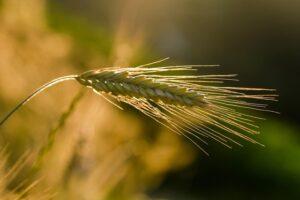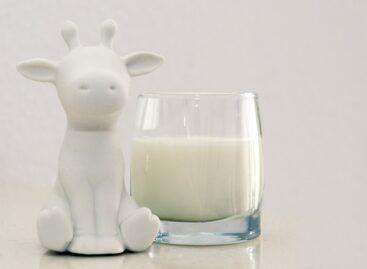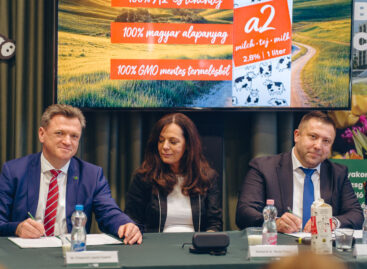The cereal season is in full swing: there are several things to pay attention to
This year has brought particularly great challenges to Hungarian agriculture: after the spring frost damage, the summer heat and drought also caused serious losses. Farmers are now focusing on sowing cereals, while it is becoming increasingly clear: adapting to changing weather conditions and conscious plant protection are essential in the future.

(Photo: Pixabay)
During the autumn sowing period, the future of cereals depends on the weather, market prices and the preparedness of farmers. Seed prices have increased by more than 10% this year, and the price of winter wheat and barley of the II. stage of growth can be more than 150 thousand forints per ton. This places a significant burden on farmers, especially when crop uncertainty is also increasing. “Sowing cereals is always a strategic decision, as they provide one of the most important bases of Hungarian agriculture. Now that costs have also increased, conscious planning is even more necessary,” said Dr. Gerda Anikó, a plant specialist at Vitafer Hungária Kft. According to the specialist, farmers can no longer afford to make decisions based solely on habit. Weather extremes, weed and pest pressure, and market fluctuations all test producers.
October tasks for cereals
October is one of the most important months for cereals: this is when the sowing of winter wheat, barley, rye, and triticale takes place. The key to a successful season is a good seedbed, the right seed, and early stock protection.
Soil preparation and sowing time: the right moisture content of the soil and the quality of the seedbed are essential. Sowing too early increases the risk of pests and viruses, while sowing too late results in weaker bushiness.
Nutrient supply: phosphorus and potassium help root formation and winter hardiness, but nitrogen can also be applied in smaller quantities.
Crop protection: treated, certified seed is essential against fusarium and powdery mildew. In October, you should also pay attention to the virus vector aphids and cicadas.
“Prevention is the best defense in the autumn period. If sowing and early crop protection are in order, it can lay the foundation for the success of the entire season. Not only the yield, but also the quality is influenced by how consciously we prepare at this stage,” emphasized Dr. Gerda Anikó, who added that crop conditioning treatments and precision nutrient application are no longer an extra option, but a factor that increases competitiveness.
Crop protection of cereals cannot be neglected either
This year has clearly shown that cereals are no exception to the effects of climate change. The sudden frost and then the drought tested farmers and their crops at the same time. “Crop protection is no longer just about spraying schedules. It is a complex strategy that includes prevention, regular crop surveys and timely decisions. Those who are consistent in this can achieve better results even in the most difficult years,” emphasized Dr. Gerda Anikó. According to the expert from Vitafer Hungária Kft., protection against virus vectors is particularly emphasized. A mild autumn may favor aphids and cicadas, which can cause a serious drop in yield in cereals. That is why monitoring, rapid response and the selection of appropriate products are essential. “The basis of conscious farming is expertise. It is not enough to just react to problems, you have to think ahead. In the case of cereal farmers, those who see the role of plant protection in a complex way and also act in a timely manner will have a competitive advantage,” the expert added.
Outlook and lessons
According to forecasts, this year’s results for cereal farmers may overall exceed the five-year average, but significant regional differences may appear. However, due to the market situation and rising input costs, farmers’ room for maneuver is narrowing. According to experts, the role of precision technologies, forecast-based plant protection and modern foliar fertilization may further strengthen in the coming years. With their help, the impact of extremes can be reduced and, in addition, production can even be stabilized. “Grains have always been the foundation of Hungarian agriculture. If we can create security in this sector, the entire food chain can become even more stable. The future is not about avoiding risks, but about smart adaptation,” emphasized Dr. Gerda Anikó, plant specialist.
Related news
The guarantee of support for farmers is the preservation of an independent, autonomous agricultural policy
🎧 Hallgasd a cikket: Lejátszás Szünet Folytatás Leállítás Nyelv: Auto…
Read more >AM: government helps dairy farmers with new measure
🎧 Hallgasd a cikket: Lejátszás Szünet Folytatás Leállítás Nyelv: Auto…
Read more >Related news
Tourism Business Index: improving sentiment, but the sector remains in the red
🎧 Hallgasd a cikket: Lejátszás Szünet Folytatás Leállítás Nyelv: Auto…
Read more >Levente Balogh announces a revolution in the quality dairy products market
🎧 Hallgasd a cikket: Lejátszás Szünet Folytatás Leállítás Nyelv: Auto…
Read more >Lamb Days – Gastronomic Adventure is coming again on March 28–29!
🎧 Hallgasd a cikket: Lejátszás Szünet Folytatás Leállítás Nyelv: Auto…
Read more >








